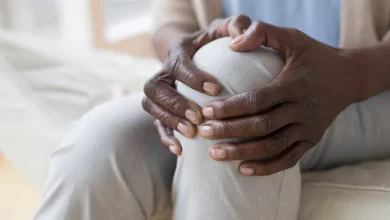Why is my period not stopping?

Humans are made to follow strict rules and if the conditions change with the standard things, it often becomes alarming for human beings. A similar condition takes place with irregular periods during the menstrual cycle. There can be chances that you may go through a longer period cycle than usual. You may wonder why periods last longer than usual. You don’t need to worry about irregular periods, there can be chances that you have an impacted lifestyle for one or two reasons mentioned below. If you or anyone you know is going through an irregular period, you can consider talking to the Gynecologist in Mumbai.
- You need to understand that everyone’s menstrual cycle is different.
- No two menstrual cycles are the same. There can be chances that you may go through a menstrual cycle that will last till one day while you can also have a period that lasts till a week or the time can also vary between these two situations.
- The minimum number of days between your last period to the first period of the next cycle can be around 21 or 35 days.
- If you are having a cycle that is shorter than 21 days, you will typically have ovulation that may have taken place earlier or not at all.
- If you are having a cycle for more than 35 days that means ovulation is not taking place or there is some irregularity.
- In case, you are going through a period that is longer than 7 days that means ovulation has not taken place.
What are the common causes for periods lasting longer than usual?
It is natural to worry about the extra days when you bleed like regular days. There are typically possible causes behind this. These symptoms are manageable though.
-
Certain non-hormonal medications
If you are taking over-the-counter medications, your period length may vary. Certain medications like Aspirin, help prevent blood clots. If you are taking such medications regularly you may probably have longer periods or heavier flow than usual. On the other hand, anti-inflammatory medications like ibuprofen produce opposite effects on the flow of periods. The periods may become lighter and may turn pink from red. Certain other medications like an antidepressant and epilepsy medications also interfere with the normal bleeding cycle causing irregular, shorter, or longer periods. Some antidepressants may have a heavier flow and can lead to painful cramps.
- With the change in these medications, you may have a change in your menstrual flow, which may stop all of sudden for a few months.
- If you are taking the course of any of these medications for more than 3 months, you may have concerning issues affecting your cycle which may require you to meet a medical professional.
-
Hormonal birth control
Medications affecting hormonal birth control and other implants, patches, shots, IUDs, and the combination of pills affecting the reproductive hormones like progesterone and estrogen, can affect the flow of your period and the cycle duration. If you go to a doctor, your doctor will typically prescribe you medications for a heavier flow, which can be a change because of the hormonal change in the body taking place before menstruation. Some people who go through IUD issues often used to have no periods.
- This is true because of certain hormones that consist within IUD, while copper IUD can usually produce heavier and longer periods.
- In any situation, birth controls typically cause lighter flow or shorter period cycles while the use of birth control shots can cause prolonged menstrual flow in some people an opposite scenario is seen.
- If you are taking a new form of birth control medications and this is affecting how you bleed, you can talk to your doctor.
- Your doctor will explain to you things regarding how alarming the situation is and how you should tackle the same.
-
Ovulation
Sometimes you may go through certain body changes that may be related to ovulation and which can make you wonder why periods last longer than usual. A delayed period or late ovulation can impact how you bleed. Ovulation typically takes place around the halftime point of a cycle when the ovary releases an egg for fertilization with the male sperm. If you are going through late ovulation, there can be a variety of things that may affect your period quality like stress, thyroid diseases, breastfeeding, PCOS, and other medications. This delay in period can usually affect the uterine wall and can lead to heavier or delayed periods. Other symptoms that affect late ovulation, include:
- An increase in basal body temperature
- Abdominal pain in the lower part or even sides
- Increase in cervical discharge
Conclusion
You can track your period if you see your period changing from month to month by using an online application. Now, when you know why periods last longer than usual, you should probably consider talking to your gynecologist or the physician, who will help you with the right decision-making process.
Read More –
Why does PCOS cause infertility?
Can yoga be done in periods?
Why do mood swings happen during a period?
Does drinking water help you prevent diseases?
Can ovarian cysts cause bleeding?




